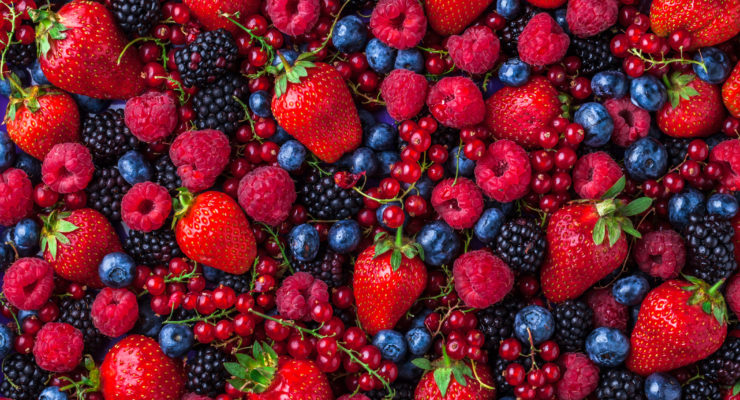6 Reasons Carbs Are Not the Enemy
Article posted in: Diet & Nutrition
Low carb diets have become all the rage for weight loss. Their popularity may have been fueled by a recent study linking a high carbohydrate diet with cancer. A weight loss diet that can help prevent cancer? Sign me up, you’re probably thinking.
But when you drill down a little, you’ll find that there’s more to losing weight—and preventing cancer—than cutting out carbs. In fact, cutting out carbs altogether is a really bad idea.
In the University of Texas MD Anderson Cancer Center study linking carbs and lung cancer, it was only one specific kind of carbohydrate that posed a risk: Carbs with a “high-glycemic load,” meaning how much a food raises your blood sugar. Those included starchy foods such as white bread, rice and potatoes.
But even those findings should be taken with a grain of salt: In reality, while the study subjects who got lung cancer ate more of those starchy carbs, they also ate fewer carbs in general, which means they got less fiber than those who didn’t get lung cancer. (More of them were smokers, too.)
Here are six reasons why some carbs—even a few starchy ones—are good for you:
1. They May Protect You from Cancer
Vegetables, fruits, beans (legumes) and whole grains are carbs, too. They’re known as complex carbohydrates to distinguish them from simple carbs, such as refined food products and those high in sugar. The complex varieties supply some of the important nutrients (including phytochemicals such as polyphenols in fruit, sulforaphane in broccoli and carotenoids in yellow and red-pigmented foods) and a generous dose of fiber that may help protect you from all kinds of cancer.
2. You Can’t Live Without Them
There’s a reason the Dietary Guidelines for Americans says that 45 to 65 percent of your daily diet should be derived from carbs. Carbohydrates provide the fuel—glucose—that every cell in your body needs to function. In decades of studies—notably the long-running Harvard-based Nurses Study and Health Professionals Follow-Up Study, a diet high in fruits, vegetables and whole grains has been linked to a reduction in the killer diseases including cancer, heart disease and diabetes. And, no surprise, they can also keep you living longer.
3. They May Make You Smarter
Carbs are also brain food. Like your other cells, your brain cells use glucose as fuel and there’s no place to store it so it needs a constant supply. A 2008 study at Tufts University found that dieters who drastically cut out carbs did poorly on tests meant to assess thinking and memory when compared to dieters on a low-calorie diet. Starving brains aren’t going to be A students.
4. They Can Help You Lose Weight
The fiber these carbs contain help slow down sugar absorption, which can keep you feeling fuller longer. One review of 12 studies that measured the effects of a high-fiber diet on weight found that people with the greatest intake of fiber lost more weight than those with the least, even if they weren’t on weight loss diets! Plus, you can eat more of them. In the parlance of science, fruits and veggies, along with low-fat dairy, have lower energy density. Low-energy density foods have only 0 to 1.5 calories per gram, according to the Centers for Disease Control and Prevention. Foods high in energy density, which include cookies, butter and bacon, have 4-9 calories per gram of weight. Medium energy dense foods, such as eggs, dried fruits, bagels and whole wheat bread, contain 1.5 to 4 calories per gram of weight. Do the math.
5. Even Some Starchy Carbs Can Help You Beat Cravings
Certain starchy carbs contain what are known as “resistant starches.” They’re actually a form of fiber that’s not fully digested so some of the calories are lost (yay!) and they don’t hike up your blood sugar. Foods that contain these resistant starches include under-ripe bananas, uncooked rolled oats (which can be turned into flour in the food processor for easier eating), cooked white beans, pumpernickel bread and pearl barley. Studies have found that adding them to the diet can help you resist cravings and increase your feeling of fullness after eating.
6. They help You Control Your Blood Sugar
In one study done by researchers for the US Department of Agriculture, people who ate a diet high in resistant starch foods lowered their post-meal blood sugar (and the resulting insulin response, the rise of this hormone produced by the pancreas) by nearly 40 percent.











